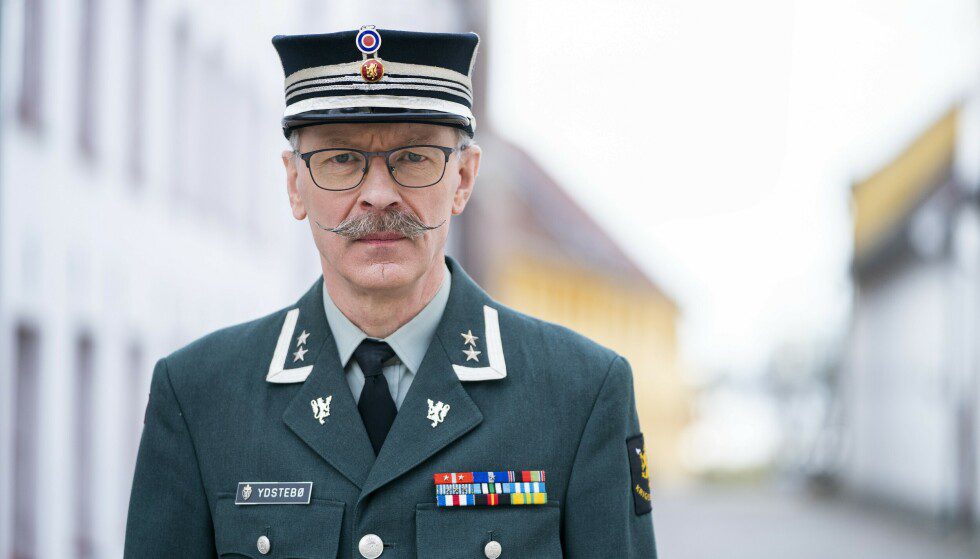Napoleon’s Army in 1812. The annihilated German Sixth Army at Stalingrad in the winter of 1942/43. Cold is a familiar enemy that has claimed many soldiers’ lives.
Winter has announced its arrival in several places in eastern Ukraine. At the same time that Russia is bombing Ukraine’s civilian infrastructure, Russian soldiers themselves are struggling to keep warm.
In a video clip circulating on social media, a Ukrainian drone flies over a Russian soldier. Forbes appeared in the video.
Soldiers lie together in a makeshift trench when a Ukrainian drone drops a grenade on them.
Then a little happens. A little bit.
There is now speculation in social media about whether the Russian soldiers suffered from frostbite, the so-called hypothermia, which means they do not move when the bomb is dropped.

“negotiating card”
– the weapon itself
– The interesting thing about winter is that if you can control it better than your opponent, it can become a weapon in itself, Lieutenant-Colonel Pal Edistipo tells Dagbladet.
He does not rule out that the video is real, but he does comment on the situation in the introduction on a more general basis.
– If it is cold and damp, there is a shortage of food, and the soldiers are alone without a leader – there is no need even for frost. It doesn’t take much before you don’t react, says Ydstebø The soldiers move with difficulty.
The lieutenant colonel explained that it was cold at night and wet during the day in several places at the front.
– Winter increases natural wear due to being in the field. Being a soldier is simply hard. It takes a lot of self-discipline and routine to handle this kind of relationship.
– Does Russia have it?
The new soldiers, recruited more or less forcibly, received minimal training. Bad and old equipment has been reported. Whether they have good enough clothes is uncertain, says Ydstebø about the coming cold.

Essential: Good winter equipment and training are essential to getting through the winter, says First Lieutenant Ballet Idestepo. Photo: Terje Pedersen/NTB
Show more
– better prepared
– History has shown that those who are ready for winter, says Yedstepo.
– It seems that Ukraine has prepared better. They have access to large amounts of winter gear. Partly they own it themselves, partly they get it from the West.
Ydstebø points out that the striking power of soldiers is directly affected by how well they adapt to the cold.
– He will say a lot about who mastered winter. The opponent is cold, freezes and becomes unfocused, he says and adds:
You are less mobile. become boring. You feel sorry for yourself. If you also lack drive, you risk a vicious cycle where it only gets worse.
Lieutenant Colonel Yedestebo does not rule out that Russia will suffer heavy losses due to the cold.
– It can happen now. The Germans suffered the greatest cold losses in the winter of 1941 to 1942, he says, and notes that the troops were then poorly equipped for the winter.
– The circumstances you are fighting are extremely important. It is important to master them.
– A little food
As Lieutenant Colonel and Director of the Defense Staff School Geir Hagen Carlsen said, the Russians are not well equipped for the winter.
– We have received many reports of poor equipment and poor training among the new recruits who were sent to the front. The range is now so great that there is no doubt that this is a big problem, Hagen Carlsen tells Dagbladet.
– So far it has been very wet. Lieutenant Colonel says:
Soldiers get little food in some cases. And it wasn’t long before it really was winter. Then it would seriously affect both combat ability and morale.

Posture warfare: The fronts are showing signs of a lack of movement, as Lieutenant Colonel Geir Hagen Carlsen points out. Photo: Knut Støvne / Forsvaret
Show more
– froze to death
Winter equipment is also something the West emphasizes in its support of Ukraine, by providing sleeping bags, winter clothes and the like, he says.
Hagen Carlsen points out that physical conditions have a direct impact on soldiers’ fighting ability.
– If the equipment is so bad that you can’t warm up over time, it directly affects your ability to fight. He adds that there are many examples in history of frostbite or soldiers who froze to death.
However, Hagen Carlsen stresses that many Russian conscripts are accustomed to harsh conditions.
– Many soldiers come from the poorest regions of Russia. We have to be a little careful looking at their circumstances through the eyes of Norwegians.
Mud hell
The war now is very much a war of positions, says Lieutenant Colonel Hagen Carlsen.
He doesn’t think Russia has the capacity to launch a major offensive in the first place.
– The Russians are digging along it approx. 1000 km front line. This is what you can do when you have poorly trained soldiers and bad equipment: He says: Digging trenches and filling positions, and adds:
They are willing to take big losses to maintain their positions.
– In my opinion, the Russians do not have a great ability to immediately launch offensive operations. It is possible that the Ukrainians have them – but this will not happen until there is a real frost and the frost settles on the ground. He says that now it is the mud hell of another world out there.

Missile Attack: “Winter of Terror”
Huge losses
Hagen Carlsen mentions the Winter War between Finland and the Soviet Union in 1939/40 and Napoleon’s attempt to capture Moscow in the winter of 1812 as examples of wars in which cold played an important and fatal role.
– We know historically that cold, poor equipment and disease have historically claimed the lives of many soldiers, he says.
Despite the fact that the warring parties are fighting a war of positions, there can be huge losses on the battlefield, the lieutenant colonel notes.
– There are heavy losses along parts of the front. The lines don’t move much, but there is a lot of artillery fire and a lot of people are lost, he said.
– Mostly you hear about it when the front lines are moving, but we’ve already seen wars of attrition along the front, he says in conclusion, referring to the fighting in Donetsk and Luhansk in the country’s east since 2014.

“Organizer. Social media geek. General communicator. Bacon scholar. Proud pop culture trailblazer.”

